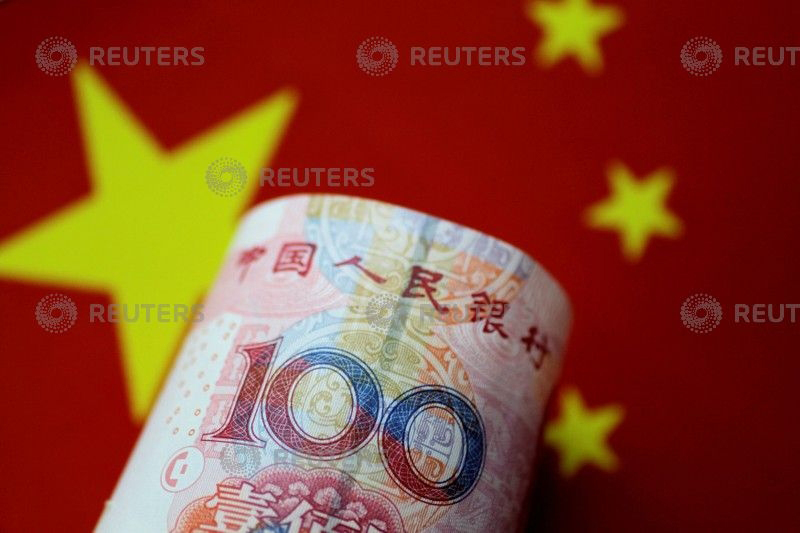


|
China's yuan Emerging market stocks have surged 5 percent so far this
year, helped by oil trading near US$70 a barrel, a soft dollar and a pick-up
in global economic growth, while US inflation remains subdued, tempering rate
rise expectations.
MSCI's benchmark emerging equities index gained 0.7 percent
after Asian shares reached another record high, as investors continued to
pile into riskier assets.Among the day's big movers were Hong Kong (China) up
1.8 percent to a record closing high, with Tencent jumping over 2 percent.
Chinese mainland shares rose 0.8 percent, closing at a 30-month high, while
index heavyweight the Republic of Korea gained 0.7 percent.
"We are seeing a lot of inflows to the EM asset class
while the dollar has got weaker and weaker, which is supportive for emerging
markets as a whole," said Trieu Pham, a strategist at MUFG. "So
far, there has been nothing to change the (bullish) view on EM."
In another sign of the sector's health, emerging markets
fund manager Ashmore posted a 7 percent rise in second- quarter assets under
management, boosted by net inflows and investment gains.
The rally extended into some emerging European markets with
Hungarian shares up 0.6 percent and Polish stocks up 0.3 percent. With the
dollar index down 0.4 percent to its lowest in more than three years, some
currencies also gained.
Amongst the biggest gainers was the South African rand
which rose as much as 0.8 percent, breaking through a technical barrier to
hit a 2 1/2-year high against the dollar. "There are definitely upside risks to the currency due
to the rumours, again and again, that Zuma will be removed," said Pham.
"Markets have been disappointed in this before, but still the police are
targeting (businessmen) the Guptas, and (new ANC leader Cyril) Ramaphosa's
focus is on the economy and corruption."
China's yuan was also still trading near its strongest in
more than two years after surging on Monday, underpinned by the Bundesbank's
decision to include the yuan in its reserves.
But the Turkish lira weakened 0.6 percent towards its lowest
in close to a month, pressured by threats from President Tayyip Erdogan to
"strangle" a planned US-backed force in Syria. In emerging Europe, the Romanian leu weakened 0.4 percent
against the euro and stocks fell 0.5 percent after Prime Minister Mihai
Tudose resigned. The ruling party meets later on Tuesday to discuss a
replacement.
Ukraine's dollar bonds fell across the curve after the
International Monetary Fund expressed concern that a draft law to create an
anti-corruption court would not guarantee the new body's independence.
|
Source: NDO